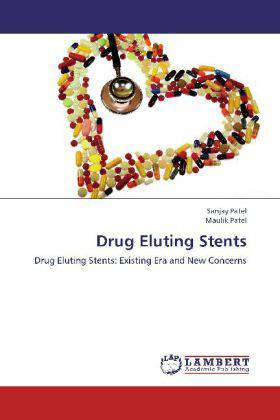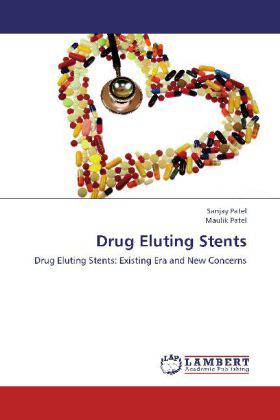
- Afhalen na 1 uur in een winkel met voorraad
- Gratis thuislevering in België vanaf € 30
- Ruim aanbod met 7 miljoen producten
- Afhalen na 1 uur in een winkel met voorraad
- Gratis thuislevering in België vanaf € 30
- Ruim aanbod met 7 miljoen producten
Zoeken
Drug Eluting Stents
Drug Eluting Stents: Existing Era and New Concerns
Sanjay Patel, Maulik Patel
Paperback | Engels
€ 58,45
+ 116 punten
Omschrijving
Interventional cardiologists have quickly replaced bare metal stents with intravascular drug-eluting stents (DES) for treating and preventing restenosis, largely on the basis of empirical evidence that shows profound reduction in angiographic and clinical restenosis. A critical reassessment of the published evidence, however, suggests that the putative superiority of intravascular drug-eluting stents is founded on questionable premises, including overestimation of restenosis benefit, underestimation of the risk for stent thrombosis, overreliance on soft rather than hard outcomes and the attendant overestimation of cost-effectiveness. Because the long-term incremental risks, benefits, and costs of drug-eluting stents have not yet been optimally evaluated in a broad spectrum of patient and lesion cohorts, the rational role of these devices in clinical management warrants reappraisal. This book will provide a brief overview of the development of drug-eluting stents from the laboratory bench to their investigation in clinical trials and their clinical use.
Specificaties
Betrokkenen
- Auteur(s):
- Uitgeverij:
Inhoud
- Aantal bladzijden:
- 124
- Taal:
- Engels
Eigenschappen
- Productcode (EAN):
- 9783659195822
- Verschijningsdatum:
- 24/07/2012
- Uitvoering:
- Paperback
- Afmetingen:
- 152 mm x 220 mm
- Gewicht:
- 191 g

Alleen bij Standaard Boekhandel
+ 116 punten op je klantenkaart van Standaard Boekhandel
Beoordelingen
We publiceren alleen reviews die voldoen aan de voorwaarden voor reviews. Bekijk onze voorwaarden voor reviews.











